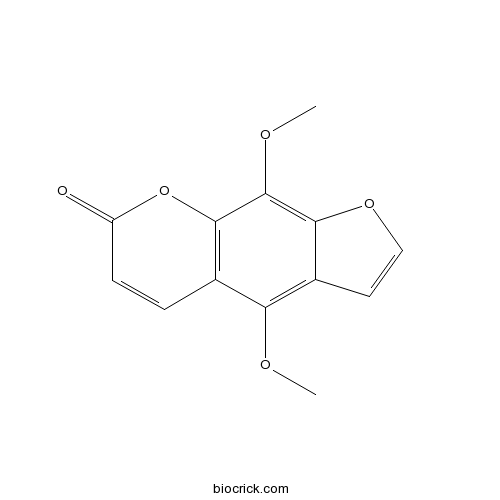Selaginella doederleinii
Selaginella doederleinii
1. The products in our compound library are selected from thousands of unique natural products; 2. It has the characteristics of diverse structure, diverse sources and wide coverage of activities; 3. Provide information on the activity of products from major journals, patents and research reports around the world, providing theoretical direction and research basis for further research and screening; 4. Free combination according to the type, source, target and disease of natural product; 5. The compound powder is placed in a covered tube and then discharged into a 10 x 10 cryostat; 6. Transport in ice pack or dry ice pack. Please store it at -20 °C as soon as possible after receiving the product, and use it as soon as possible after opening.
Natural products/compounds from Selaginella doederleinii
- Cat.No. Product Name CAS Number COA
-
BCN5568
Isopimpinellin482-27-9
Instructions

Purification, cDNA cloning, and characterization of plant chitinase with a novel domain combination from lycophyte Selaginella doederleinii.[Pubmed: 29966504]
None
Simultaneous quantification of five biflavonoids in rat plasma by LC-ESI-MS/MS and its application to a comparatively pharmacokinetic study of Selaginella doederleinii Hieron extract in rats.[Pubmed: 29101819]
None
Optimization of Ionic Liquid-Assisted Extraction of Biflavonoids from Selaginella doederleinii and Evaluation of Its Antioxidant and Antitumor Activity.[Pubmed: 28387736]
None
Analysis of the Total Biflavonoids Extract from Selaginella doederleinii by HPLC-QTOF-MS and Its In Vitro and In Vivo Anticancer Effects.[Pubmed: 28230759]
None
Seladoeflavones A-F, six novel flavonoids from Selaginella doederleinii.[Pubmed: 27889540]
None
Selagintriflavonoids with BACE1 inhibitory activity from the fern Selaginella doederleinii.[Pubmed: 27889245]
None
Delicaflavone induces autophagic cell death in lung cancer via Akt/mTOR/p70S6K signaling pathway.[Pubmed: 27838742]
Searching for potential anticancer agents from natural sources is an effective strategy for developing novel chemotherapeutic agents. In this study, data supporting the in vitro and in vivo anticancer effects of delicaflavone, a rarely occurring biflavonoid from Selaginella doederleinii, were reported. Delicaflavone exhibited favorable anticancer properties, as shown by the MTT assay and xenograft model of human non-small cell lung cancer in male BALB/c nude mice without observable adverse effect. By transmission electron microscopy with acridine orange and Cyto-ID®Autophagy detection dyes, Western blot analysis, and RT-PCR assay, we confirmed that delicaflavone induces autophagic cell death by increasing the ratio of LC3-II to LC3-I, which are autophagy-related proteins, and promoting the generation of acidic vesicular organelles and autolysosomes in the cytoplasm of human lung cancer A549 and PC-9 cells in a time- and dose-dependent manner. Delicaflavone downregulated the expression of phospho-Akt, phospho-mTOR, and phospho-p70S6K in a time- and dose-dependent manner, suggesting that it induced autophagy by inhibiting the Akt/mTOR/p70S6K pathway in A549 and PC-9 cells. Delicaflavone is a potential anticancer agent that can induce autophagic cell death in human non-small cell lung cancer via the Akt/mTOR/p70S6K signaling pathway. Delicaflavone showed anti-lung cancer effects in vitro and in vivo. Delicaflavone induced autophagic cell death via Akt/mTOR/p70S6K signaling pathway. Delicaflavone did not show observable side effects in a xenograft mouse model. Delicaflavone may represent a potential therapeutic agent for lung cancer.
Ethyl acetate extract from Selaginella doederleinii Hieron inhibits the growth of human lung cancer cells A549 via caspase-dependent apoptosis pathway.[Pubmed: 27292193]
Selaginella doederleinii Hieron has been used as a folk medicine for the treatment of different cancers, especially for nasopharyngeal carcinoma, lung cancer and trophoblastic tumor in China. Previously, the ethyl acetate extract from S. doederleinii (SDEA extract) showed favorable anti-cancer potentials. However, the main chemical composition and anticancer mechanism of the SDEA extract were still not very clear. Until now, there are no reports available about the oral toxicity of the extract.


